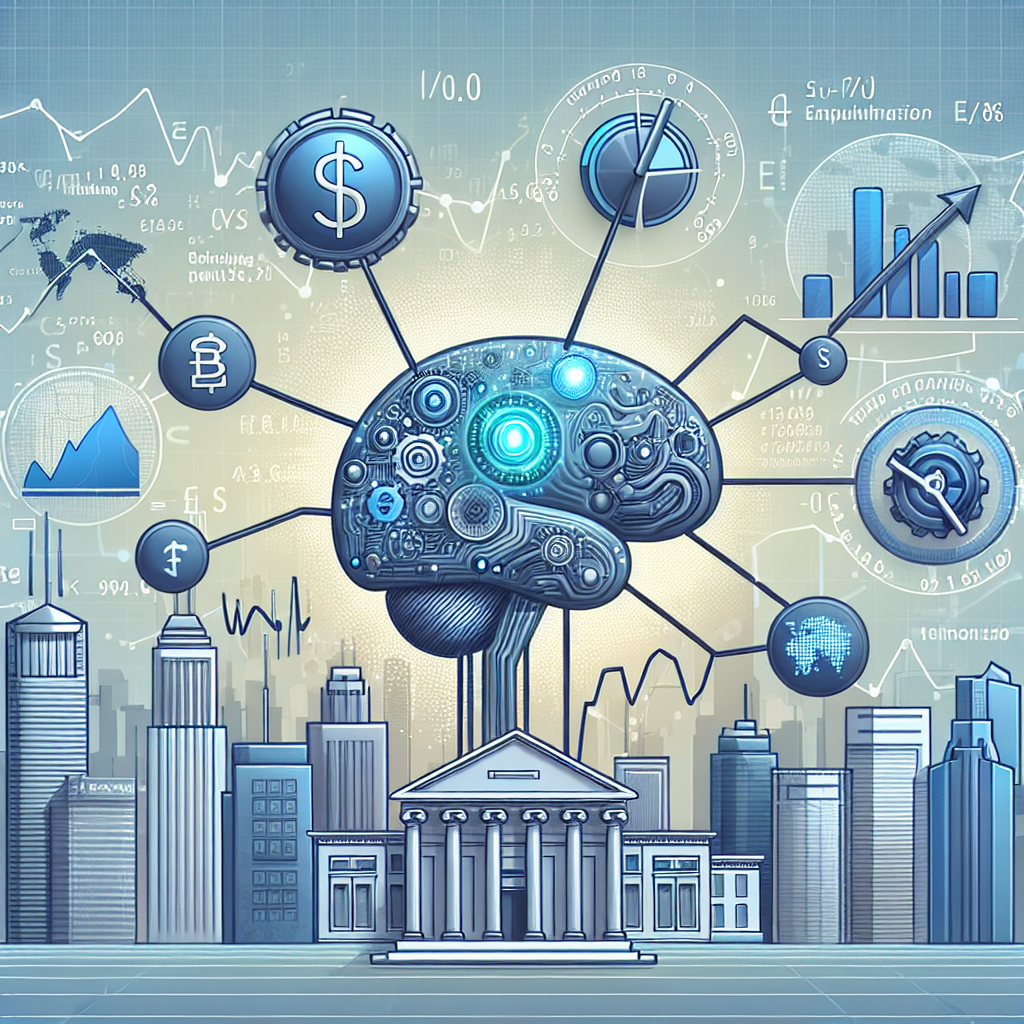Artificial General Intelligence (AGI) is a powerful technology that is revolutionizing the banking industry. With the ability to process massive amounts of data, analyze patterns, and make decisions in real-time, AGI is transforming the way banks operate and serve their customers. In this article, we will explore how AGI is reshaping the banking industry and the implications it has for the future.
The Role of AGI in Finance
Artificial Intelligence (AI) has already made significant inroads in the banking industry, with applications ranging from fraud detection to customer service. However, AGI takes AI to the next level by enabling machines to think and learn like humans. This allows AGI to perform complex tasks that were previously only possible for humans, such as analyzing unstructured data, making predictions, and generating insights.
One of the key areas where AGI is making a big impact in finance is in risk management. Banks are using AGI to analyze vast amounts of data from multiple sources to identify potential risks and opportunities. By using AGI-powered algorithms, banks can better assess creditworthiness, detect fraudulent activities, and optimize their investment portfolios.
Another area where AGI is being used in finance is in customer service. AGI-powered chatbots are becoming increasingly popular as a way for banks to provide personalized and efficient service to their customers. These chatbots can answer customer queries, provide account information, and even help customers make financial decisions.
AGI is also being used in trading and investment management. By analyzing market trends and historical data, AGI-powered algorithms can make better trading decisions and generate higher returns for investors. This has led to the rise of algorithmic trading, where AGI-powered systems execute trades automatically based on predefined criteria.
Overall, AGI is transforming the banking industry by enabling banks to make better decisions, improve efficiency, and provide more personalized service to their customers. As AGI technology continues to evolve, we can expect to see even more innovations in the banking industry in the coming years.
The Future of AGI in Finance
The future of AGI in finance is bright, with many exciting opportunities on the horizon. As AGI technology continues to improve and become more sophisticated, we can expect to see even more applications in the banking industry. Some of the key areas where AGI is expected to have a big impact in the future include:
1. Personalized Banking: AGI-powered systems will enable banks to provide more personalized services to their customers, such as customized investment advice, tailored loan products, and personalized financial planning.
2. Risk Management: AGI will continue to play a key role in risk management, helping banks to identify and mitigate risks in real-time. By analyzing vast amounts of data, AGI can help banks to better assess creditworthiness, detect fraud, and optimize their risk exposure.
3. Compliance: AGI-powered systems can help banks to ensure compliance with regulations by analyzing large volumes of data and identifying potential compliance issues. This will help banks to avoid costly fines and penalties.
4. Automation: AGI-powered systems will enable banks to automate many of their processes, such as customer service, trading, and investment management. This will help banks to reduce costs, improve efficiency, and provide better service to their customers.
Overall, the future of AGI in finance looks promising, with many exciting opportunities for innovation and growth. As AGI technology continues to evolve, we can expect to see even more applications in the banking industry that will transform the way banks operate and serve their customers.
FAQs
Q: What is Artificial General Intelligence (AGI)?
A: Artificial General Intelligence (AGI) is a type of artificial intelligence that is capable of performing any intellectual task that a human can do. AGI is different from narrow AI, which is designed to perform specific tasks, as AGI is able to learn and adapt to new situations.
Q: How is AGI reshaping the banking industry?
A: AGI is reshaping the banking industry by enabling banks to make better decisions, improve efficiency, and provide more personalized service to their customers. AGI is being used in areas such as risk management, customer service, trading, and investment management to help banks optimize their operations and serve their customers more effectively.
Q: What are some of the key benefits of AGI in finance?
A: Some of the key benefits of AGI in finance include improved decision-making, increased efficiency, better risk management, and personalized service. AGI-powered systems can help banks to analyze vast amounts of data, make better predictions, and provide more tailored services to their customers.
Q: What are some of the challenges of implementing AGI in finance?
A: Some of the challenges of implementing AGI in finance include data privacy concerns, regulatory compliance, and the potential for algorithmic biases. Banks must ensure that they have the proper safeguards in place to protect customer data and comply with regulations when implementing AGI-powered systems.
Q: What can we expect to see in the future of AGI in finance?
A: In the future, we can expect to see even more applications of AGI in finance, such as personalized banking services, improved risk management, and increased automation. As AGI technology continues to evolve, we can expect banks to leverage this technology to drive innovation and growth in the banking industry.
Conclusion
Artificial General Intelligence (AGI) is reshaping the banking industry by enabling banks to make better decisions, improve efficiency, and provide more personalized service to their customers. With applications ranging from risk management to customer service, AGI is transforming the way banks operate and serve their customers. As AGI technology continues to evolve, we can expect to see even more innovations in the banking industry that will drive growth and innovation in the future.

